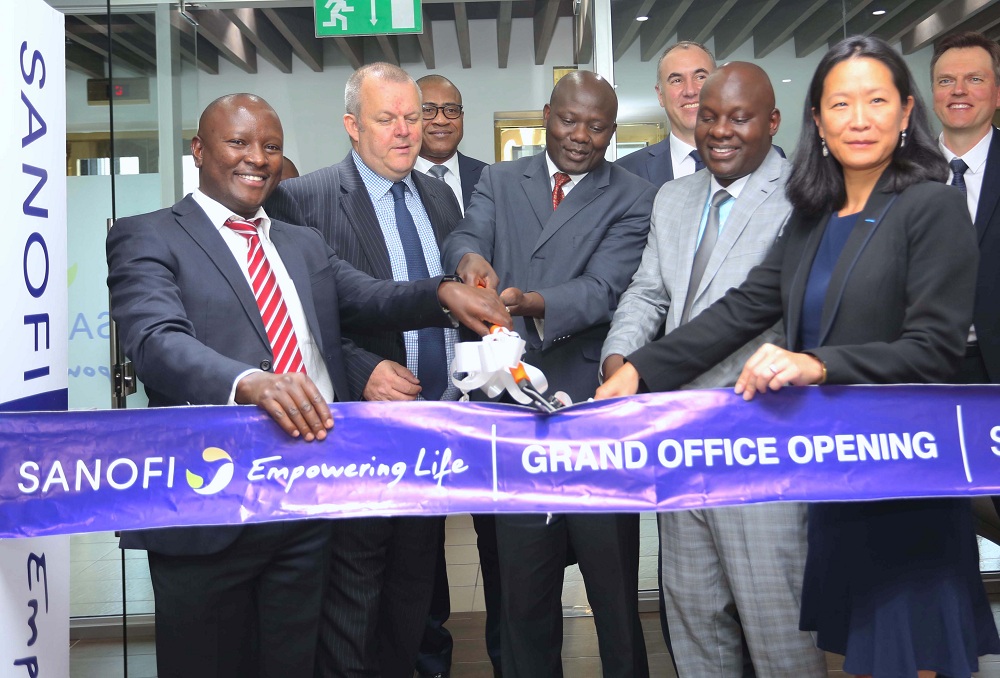Sanofi, a French pharmaceutical company, has unveiled a state-of-the-art regional office in Nairobi that will anchor operations for the East African region that will encompass Kenya, Uganda, Tanzania and Ethiopia.
The new office design, one of its kind, reflects a modern way of working. It is an activity based open space where desks are not allocated to individuals to encourage interactions. The work stations create a serene environment that triggers innovative thinking and promotes open communication across the organisation.
Speaking during the official opening event, Sanofi Head of Africa Operations Jon Fairest said the pharmaceutical company is committed to working in Africa and the opening of a regional hub in Nairobi is a vote of confidence for Kenya, adding that the investment in the country will bolster business in the region as well as help in its expansion plans.
“Establishing a regional office here in Kenya is a strong commitment by the Sanofi Group on its investments intent for the people of Kenya and Africa. Through this office we are empowered and we will dedicatedly serve the people of Kenya and East Africa,” he said.
Sanofi has invested heavily in the area of Non-Communicable Diseases (NCDs) through research and development. The company has entered into strategic partnerships with the ministry of Health, professional bodies and other social organisations to build capacity and equip healthcare workers with the necessary skills to effectively address the challenges posed NCDs in the region.
“We are committed to breaking the barriers in the area of NCDs by ensuring that we have the right skills and capacity building for our healthcare workers,” said Peter Munyasi, General Manager Sanofi East Africa Hub Southern Region.
Dr Joseph Kibachio, the head of Non-Communicable Diseases (NCDs) at the ministry of Health, called for strengthening public private partnerships in the management and treatment of common NCDs such as diabetes and cardiovascular diseases countrywide.
READ: Sectors that slowed economic growth in 2017
“Capacity building for our healthcare workers is key as the knowledge and experience gained through these initiatives trickles down to patients through better disease management & treatment outcomes,” he noted.
In the area of cardiovascular care, the prevalence of Hypertension in Kenya is at 23%. Only 4.5% of this population achieve treatment targets with majority of the treatment decisions being made by primary health care physicians.













Leave a comment